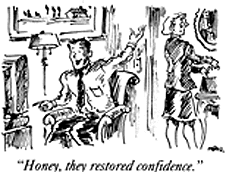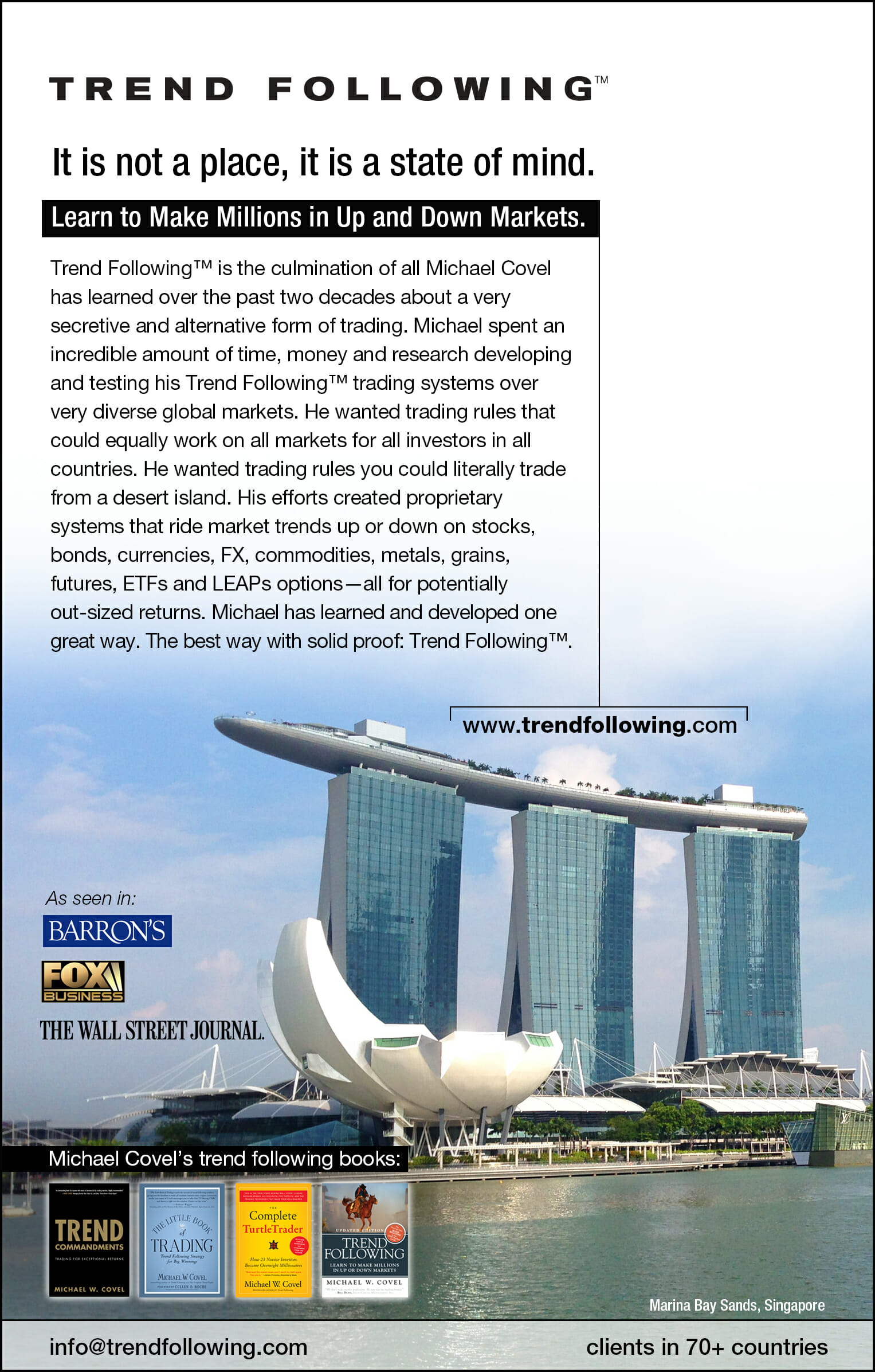The Economist recently ran a story titled, “Freud, Finance and Folly” that announced if you don’t have a handle on the mental side of the equation (something all great trend followers do), you are in deep trouble. There are plenty of “traders” whose public image “looks pristine”, but their personal lives, mental health and balance are in such dire straights — they are not capable of any type of real success or achievement. They might get “the numbers”, but their problematic mental health keeps them back. Bottom line — they never get to where they want to go. Life becomes one big rationalization (or excuse) for them.
How can you avoid the “rationalization”? Here are excerpts from “Freud, Finance and Folly” that trend followers understand deep in their core. These mistakes are systematic and predictable for most traders:
Where Does Your Confidence Come From?

- Over-optimism. Ask most people about the future, and they will see too much blue sky ahead, even if past experience suggests otherwise. Surveys have shown that people’s forecasts of future stock market movements are far more optimistic than past long-term returns would justify. The same goes for their hopes of ever-rising prices for their homes or doing well in games of chance. In a recent study of Dutch game-show contestants, people’s estimates of their odds on winning were around 25% too high. Americans are perhaps the most optimistic: according to one poll, around 40% of them think they will end up among the top 1% of earners. Such optimism can be useful for managers or football players, and sometimes turns into a self-fulfilling prophecy. But most of the time it results in wasted effort and dashed hopes.
- The anchor effect. First encounters tend to be decisive not only in judging the character of a new acquaintance but also in negotiations over money. Once a figure has been mentioned, it takes a strange hold over the human mind. The asking price quoted in a house sale, for example, tends to become accepted by all parties as the “anchor” around which negotiations take place, according to one study of property brokers. Much the same goes for salary negotiations or mergers and acquisitions. If nobody has much information to go on, a figure can provide comfort–even though it may lead to a terrible mistake.
- Stubbornness. No one likes to abandon a cherished belief, and the earlier a decision has been taken, the harder it is to give up. In one classic experiment, two groups of students were shown slides of an object, say a fire hydrant or a pair of spectacles. The slides started out of focus and were gradually made clearer until the students could identify the object. Those who started with a very blurry image tried to decide early and then found it difficult to identify it correctly until quite late in the process, whereas those who started less out of focus kept a more open mind and cottoned on more quickly. The same sort of thing happens in boardrooms or in politics. Drug companies must decide early to cancel a failing research project to avoid wasting money, but find it difficult to admit they have made a mistake. Bosses who have hired unproductive employees are reluctant to fire them.
- Getting too close. People put a lot of emphasis on things they have seen and experienced themselves, which may not be the best guide to decision-making. For example, many companies took action to guard against the risk of terrorist attack only after September 11th, even though it was present long before then. Or somebody may buy an overvalued share because a relative has made thousands on it, only to get his fingers burned. In finance, too much emphasis on information close at hand helps to explain the so-called “home bias”, a tendency by most investors to invest only within the country they live in. Even though they know that diversification is good for their portfolio, a large majority of both Americans and Europeans invest far too heavily in the shares of their home countries. They would be much better off spreading their risks more widely.
- Winning and losing. Fear of failure is a strong human characteristic, which may be why people are much more concerned about losses than about gains. Consider the following bet: with the flip of a coin, you could win $1,500 if the coin turns up heads, or lose $1,000 on the tails. Now describe it in another way: with heads, you keep all the money you had before the bet, plus $1,500; with tails, you also keep everything, except $1,000. The two bets are identical, and each one, on average, will make you richer by $250 (although that average will be little consolation to the punter who has just lost $1,000). Even so, people will usually prefer the second bet. Behavioral economists say that is because the prospect of losses seems far more daunting in isolation, rather than in the context of looking at your entire wealth, even if the average outcome is the same. This sort of myopia in the face of losses explains much of the irrationality people display in the stock market.
- Misplaced priorities. More information is helpful in making any decision but, says Mr. Kahneman, people spend proportionally too much time on small decisions and not enough on big ones. They need to adjust the balance. During the boom years, some companies put as much effort into planning their Christmas party as into considering strategic mergers.
- Counterproductive regret. Crying over spilled milk is not just a waste of time; it also often colors people’s perceptions of the future. Some stock market investors trade far too frequently because they are chasing the returns on shares they wish they had bought earlier.
Trend Following Products
Review trend following systems and training:

More info here.
